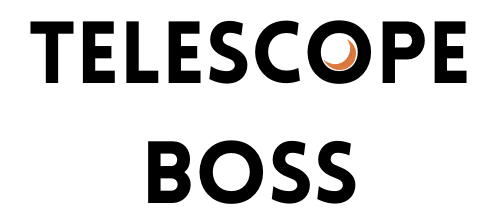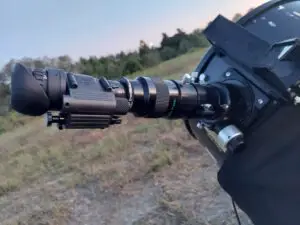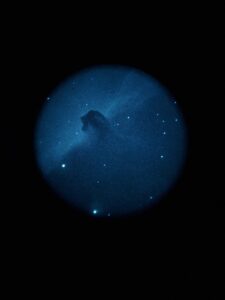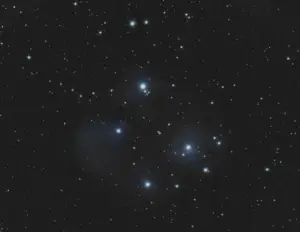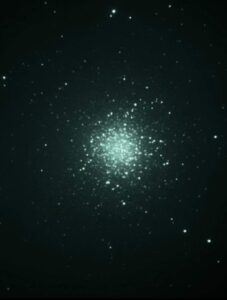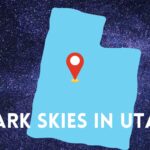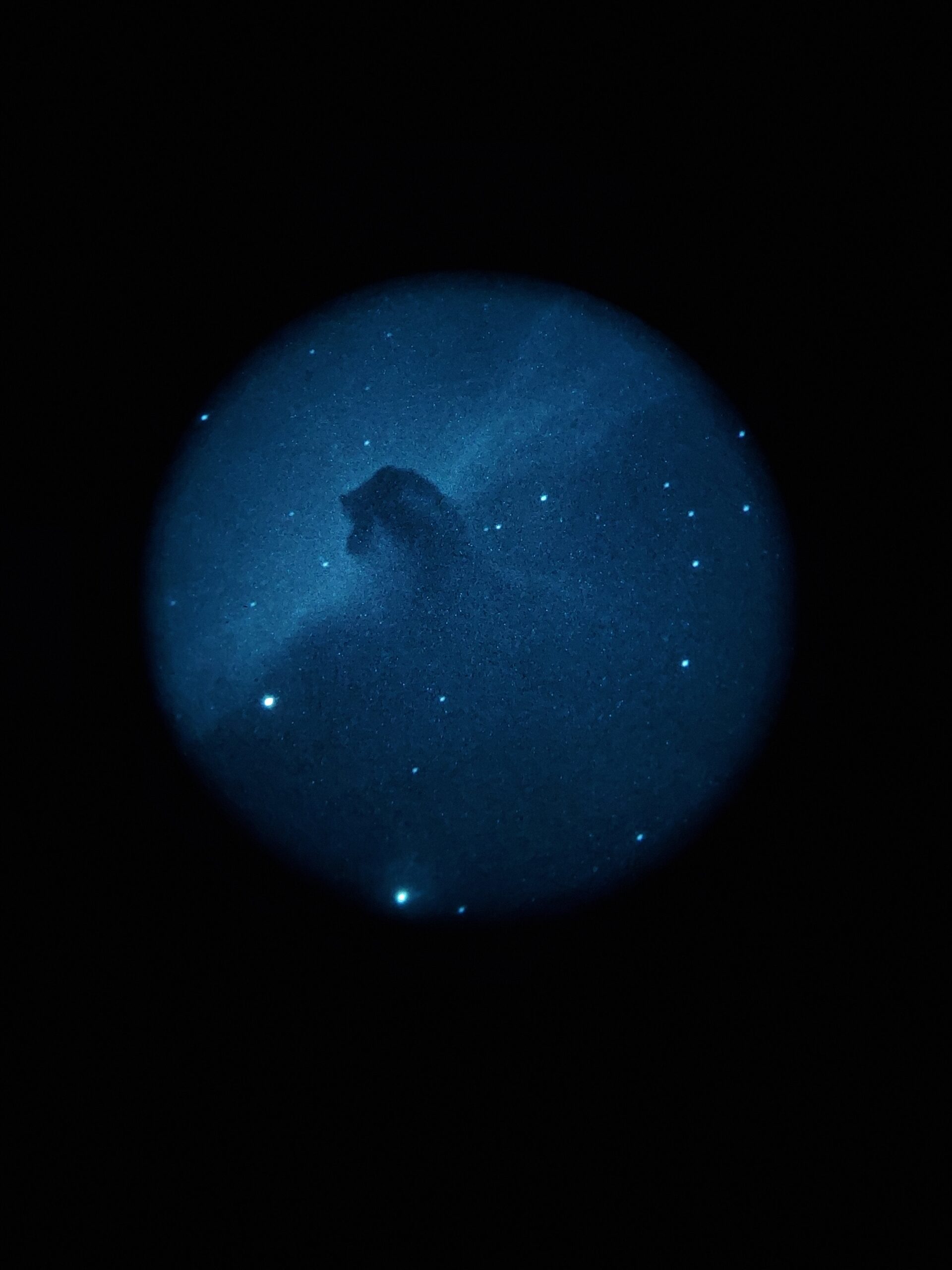Colorado is an incredible place to observe with many well known dark sky areas, but if you are looking to find the best spots that locals use to set up for a comfortable night of observing.
While you can visit the 8 International Dark Sky Areas, these dark areas have been visited by astronomers and here are the details of these sites with helpful tips for finding dark skies close to Denver and in the southern part of the state.
Remember when visiting Colorado that it is very mountainous. Mountains mean weather changes quickly and you will need to dress warmly as the temperatures can be very different at higher altitudes.
I have heard a few astronomers say that Colorado is where they have done their highest elevation observing.
Gardner, Colorado
Less than 3 hours from Denver, Gardner is a bortle 2 area that is popular with the Colorado Springs Astronomical Society which is very active and hosts frequent star parties and hosts public meetings for those interested in astronomy.
There is a designated area called Starry Meadow where there is wide access to the dark skies.
The park is located off Red Rock Road which has several areas to set up for observing.
I recommend that you visit this site when there is an event going on for your first visit as it can be a bit difficult to find.
This park is home to the Rocky Mountain Star Stare, an annual star party in Gardner Colorado.
Gardner is a great dark area, if you are looking to set up to observe, you can drive to town and you will find somewhere to set up.
Edmond G. Kline Dark Sky Site
The Denver Astronomical Society has established the Edmond G. Kline Dark Sky site, also known as the EGK site. It was originally called the Deer Trail Dark Sky Site before it was purchased by the Society.
The site is incredible for astronomers. It has north-south oriented concrete pads with electricity to facilitate easy set up for astronomers.
The site also has a warming shed and bathroom, both equipped with red light.
This is luxury for anyone who has spent the night observing in less than perfect conditions. Before your first visit be sure to read the PDF at the bottom of this page with guidelines for using the site.
Just 60 miles outside of Denver, this is an incredible place to observe and it is available only to members.
Membership is very affordable and well worth it even if you will only be able to visit a few times.
Forest Road 900
Forest Road 900 is located in Yampa Colorado in the western part of the state. At time of writing it was a bortle 1 sky.
The area is also known as Smith Creek Dispersed Camping.
One astronomer reported seeing IC1101 from this location. A very difficult target in light polluted skies.
This is a dispersed camping area so you do not need to make reservations, but if you are not used to this kind of remote camping be careful and have a backup plan. It can be crowded despite the remote location as there are several trail heads in the area.
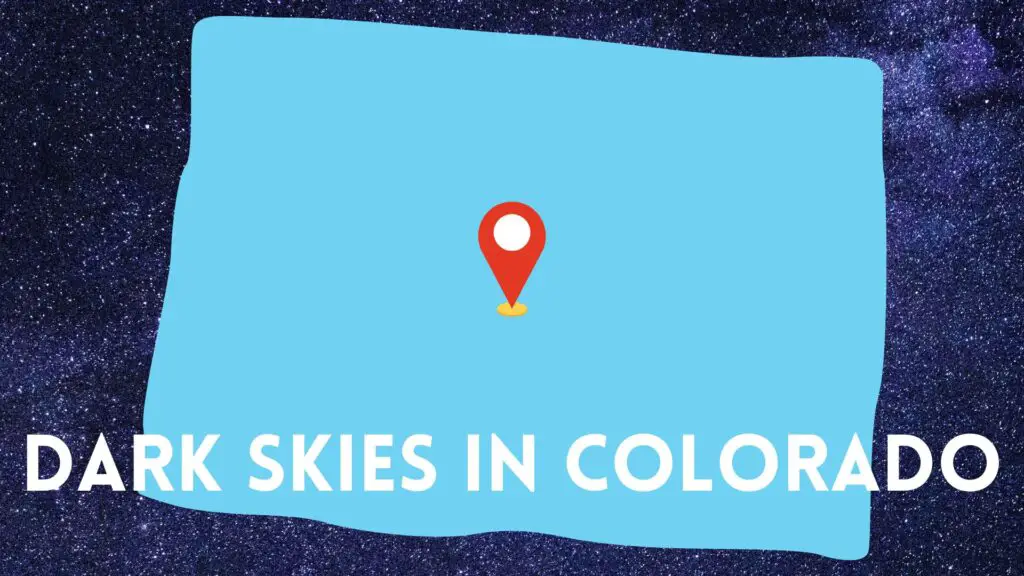
Black Canyon of the Gunnison
Black Canyon is one of the best places to observe in Colorado. It is located within Black Canyon of the Gunnison National Park and it is an International Dark Sky Site.
The park remains open all night making it a great place to set up.
The Black Creek Astronomical Society hosts frequent events in conjunction with park staff and these events are free to anyone who has paid the park entrance fee.
Many astronomers set up around the canyon and there are plenty of suitable locations, but there is not electricity, so pack your own power and be sure to keep white light to a minimum and use red light.
Smokey Jack
Smokey Jack is located in the Wet Mountains and the Smokey Jack Observatory is located in the International Dark Sky Community of Westcliffe.
The Smokey Jack Observatory is a 12×12 observatory with a retractable roof and houses a 14 inch Schmidt Cassegrain telescope.
They reserve private star parties and host public ones.
The community is very supportive of the astronomy community and it is a great place to spend some time in Colorado.
Lost Creek Wilderness
Lost Creek Wilderness is a campground with very dark skies. The area can be found down a 20 mile road.
The Lost Creek Wilderness has a “main” camping area, but there are many forest roads that are suitable for setting up for a night of observing.
While you do not need an off road vehicle, be careful not to get stuck.
This is a wilderness area, so be sure to pack everything you will need, water, food and power packs.
Lost Creek Wilderness is just an hour outside of Denver making it extremely accessible for those just passing through the area.
North Sterling State Park
Located in the north east corner of Colorado, North Sterling State Park is about 3 hours outside of Denver.
They have a dedicated stargazing area in the park that makes it easy to drive up and set up.
Camping here is expensive, but the treeless landscape makes stargazing easier.
It is a bortle 3 area and there are campsites with electricity available.
International Dark Sky Areas
Colorado has 8 International Dark Sky certified sites, which is a lot. Many of them have been designated in the past 5 years after significant community support.
These locations are important in the fight to preserve humanity’s access to the dark skies. The artificial light produced by humans is making it more difficult to see dim distant objects and Colorado astronomers are fighting back.
3 of the 8 IDA sites are International Dark Sky Communities which require demonstration of significant community support for preserving the dark skies.
This means that you can travel back in time to darker skies when visiting some of these towns.
80% of skies are too dark to see the Milky Way, and Colorado is determined to hold on to the dark skies they have!
Black Canyon of Gunnison National Park
Black Canyon is inside an National Park and it has been a designated dark sky park since 2015 and has been actively promoting astronomy since 1998.
Dinosaur National Monument
Some of the most well preserved dinosaur fossils are located in this area on the border of colorado and utah.
The fossils were first unearthed in 1915, so the site has been very well protected for over 100 years.
The area received International Dark Sky status in 2019.
Jackson Lake State Park
In the north east of Colorado this beach park is a great place to find a campsite and look up.
The park was designated as an International Dark Sky Park in 2020, and they host star parties with the Colorado Springs Astronomical Society.
This state park has extensive outdoors classes and it is a great family spot with lots of activities to enjoy.
Great Sand Dunes National Park and Preserve
This National Park is located in south central Colorado and is open 24/7. It was designated as a Dark Sky Park in 2019 and was granted “Gold Tier” status due to its exceptionally dark skies and peaceful environment.
It is called the quietest park.
There is a dark sky area for setting up telescopes and it is located by a parking lot for accessibility.
Hovenweep National Monument
Hovenweep is another gold tier International Dark Sky Park due to its remote location and deeply dark skies.
The park closes at sunset, but stargazing is permitted in the visitor’s center parking lot and the campground.
Plan to hike during the day and see the ancient structures and rock art in the park that appear to mark celestial events.
Norwood
This small town in Colorado loves their dark sky. The residents of the city called Norwood Dark Sky Advocated started to measure the darkness of their skies and were able to receive International Dark Sky Community in 2019.
The town has a few restaurants, a small grocery store and a hardware store.
It is located at 7,000 feet above sea level and shielded from distant light pollution by cliffs and plateaus.
Ridgway
Designated in 2020 Ridgway became Colorado’s 3rd International Dark Sky Community. This designation requires the applicants to demonstrate significant community support for keeping the sky dark.
This means that wherever you are in town you should have good views.
Ridgway State Park offers modern camping facilities, but anywhere in town can work! How cool?
Westcliffe and Silver Cliff
Sparsely populated south central Colorado is a dark sky haven. This are was designated as an International Dark Sky Community in 2015, the first in Colorado and a model for the two that have been added more recently.
This is the highest elevation Dark Sky Community in the world.
The public star parties are held in the Smoky Jack Observatory.
The Rainbow Trial is a popular tourist attraction and could be a good place to plan your stargazing adventure.
Other Astronomer Favorites in Colorado
There are several other places that I have heard about, but have less information about. If you are looking for a place to camp, try some of these:
- Guanella Pass Road
- Coffee Pot Road
- Flagler Reservoir
- Grand Mesa
- Canyon of the Ancients
- Gateway Road
- Republican River
- Roan Cliffs
- Dakota Hogback
- 285 Towards Salida
- Pawnee National Grasslands
These areas are darker than big cities, but not as dark as some other areas on our list. Be sure to dress for colder night time temperatures and pack water and supplies when driving someplace new.
